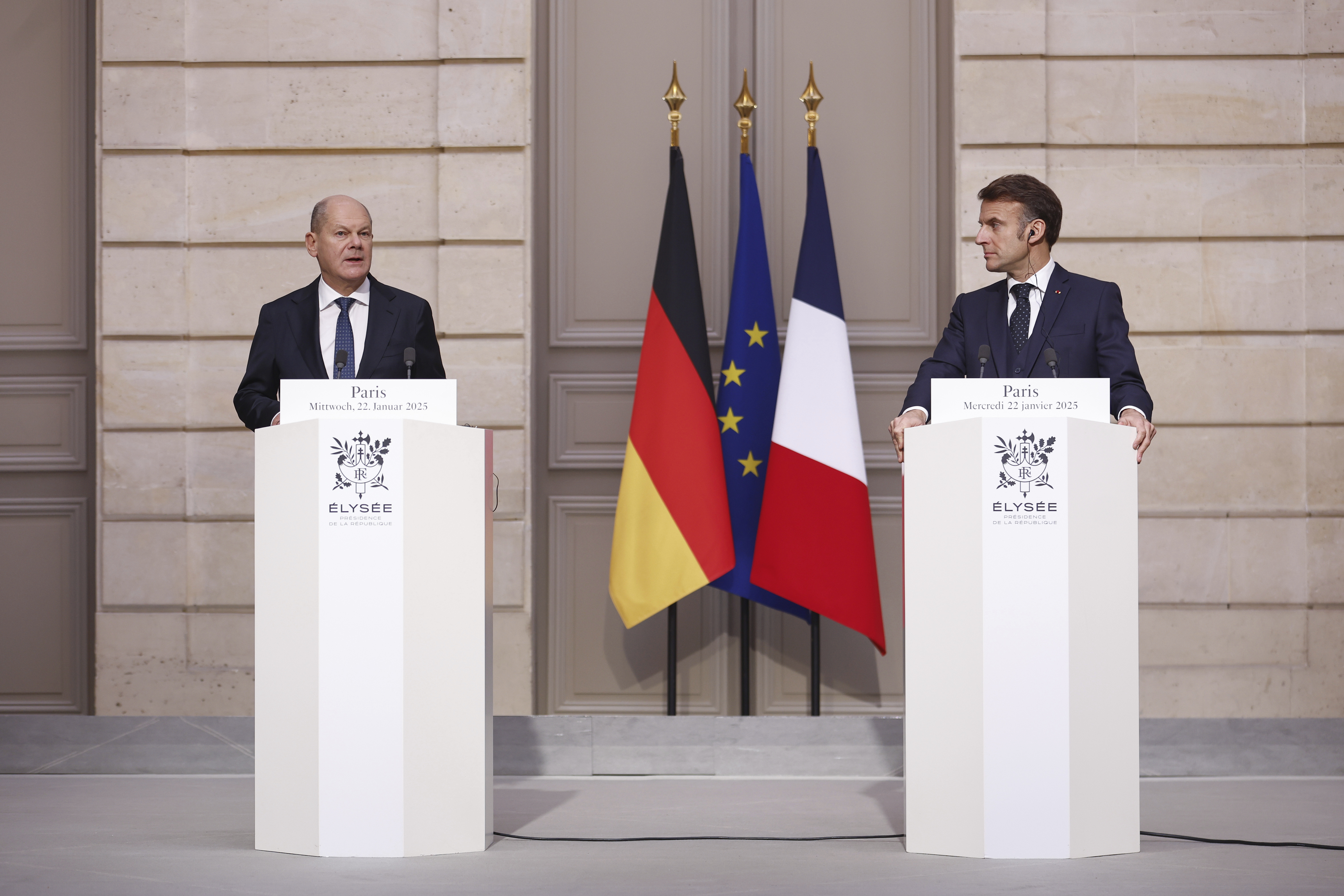
PARIS/BERLIN - French President Emmanuel Macron and visiting German Chancellor Olaf Scholz have stressed the need for a stronger and more united Europe to address emerging global challenges, including Donald Trump's return to the US presidency.
"It's up to the Europeans, and to our two countries, to consolidate a united, strong and sovereign Europe," Macron said during a joint press conference on Wednesday following their meeting.
Macron highlighted the importance of a Europe that maintains its transatlantic relations while asserting its own interests and defending its values through European mechanisms. Facing the emerging challenges and concerns, the Franco-German partnership remains solid, he said, urging Europe to respond with greater unity, ambition, boldness, and independence.
ALSO READ: Germany to lobby Trump on WHO withdrawal, agency hopes for U-turn
German Chancellor Scholz described Trump's new presidency as a "challenge" for Europe, stating that the continent must remain a constructive and reliable partner while refusing to give in or hide. Europe needs the Franco-German partnership in this difficult time, Scholz said. "We both agree that Europe must grow stronger and more resilient in this changing world."
With Germany set to hold legislative elections in February, Scholz's trip to France is seen as a farewell visit to its closest European partner.
Separately, German Vice-Chancellor and Minister of Economics Robert Habeck has warned that Germany is prepared to impose retaliatory tariffs if the United States proceeds with new import duties on German products.
Speaking at the Handelsblatt Energy Summit in Berlin on Tuesday, Habeck emphasized the need for an independent approach to US trade relations under President Donald Trump.
Habeck said Germany should approach the new US government with "an outstretched hand" but not allow the hand "slapped away without limits." "We should not crawl in submissiveness," he added.
Trump, in his second term, has intensified pressure on key trading partners, reassessing global trade relationships. While threats of new tariffs have been issued, no formal measures have yet been introduced.
Habeck, also the minister in charge of Germany's climate action, took the opportunity to address the broader implications of Trump's climate policies, urging Germany and Europe to continue the leadership in developing low-carbon energy technologies, despite challenges posed by the US administration.
Marcel Fratzscher, president of the German Institute for Economic Research (DIW Berlin), highlighted that Trump's trade policies could deliver a "triple hit" to Germany: falling exports, a further slowdown in industry, and job losses.
"The German economy has already contracted for two consecutive years, and trade tensions would exacerbate the challenges of recovery," Fratzscher said. "Trade conflicts will also push up prices and intensify inflation, particularly hurting low- and middle-income households."
ALSO READ: Germany to lobby Trump on WHO withdrawal, agency hopes for U-turn
Germany's automotive industry faces new challenges as Trump's tax policies could encourage more automakers to shift production to the US, said Hildegard Mueller, president of the German Association of the Automotive Industry (VDA).
Mueller urged Germany and Europe to strengthen their independence and competitiveness.
She also cautioned that Trump's tariff policies could raise car prices in the US and hurt global automakers, leading to declining stock prices and worsening inflation.
"While Trump pledged to reduce inflation during his campaign, these tariffs could have the opposite effect, placing additional strain on the US economy and consumers," she added.
Moritz Schularick, president of the Kiel Institute for the World Economy, said that companies might relocate investments to the US to avoid tariffs, but this would lead to higher prices for US consumers and further inflationary pressure.



